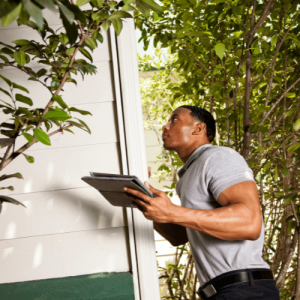Landlords have the right and responsibility to inspect their properties to ensure that tenants are maintaining the property and to assess its condition before renewing contracts. Here are some guidelines for landlords when conducting property inspections:
1. Review local laws and lease agreements: Familiarize yourself with local landlord-tenant laws regarding property inspections. Additionally, carefully review the lease agreement to understand the specific terms and conditions related to inspections and notice requirements.
2. Provide proper notice: Before conducting an inspection, you must provide the tenant with proper written notice as required by local laws and the lease agreement. Typically, landlords are required to give 24-48 hours’ notice before entering the property, except in cases of emergency.
3. Schedule appointments: Contact the tenant to schedule a mutually convenient time for the inspection. This allows the tenant to be present during the inspection, ask questions, and address any concerns they may have.
4. Be respectful and professional: When conducting the inspection, maintain a professional and respectful demeanor. Remember that the property is the tenant’s home, and they have a right to privacy. Respect their personal space and belongings during the inspection.
5. Focus on maintenance and safety: Inspections should primarily assess the overall condition of the property and identify any maintenance or safety issues. Check for any damages, leaks, pest infestations, or signs of neglect that may need attention.
 6. Document the inspection: Take detailed notes and photographs during the inspection to document any issues or concerns. This documentation can serve as evidence if disputes arise later on. Keep records of previous inspections as well.
6. Document the inspection: Take detailed notes and photographs during the inspection to document any issues or concerns. This documentation can serve as evidence if disputes arise later on. Keep records of previous inspections as well.
7. Communicate findings with the tenant: After the inspection, discuss your observations and any necessary repairs or maintenance with the tenant. Provide them with a written report outlining the findings and any steps required for resolution. Offer guidance or resources if needed.
8. Address repair and maintenance issues promptly: If you identify any repairs or maintenance needs during the inspection, address them in a timely manner. Ensure that the tenant’s living conditions are safe, habitable, and in compliance with applicable regulations.
9. Consider renewal decisions: Property inspections can also inform your decision-making process when renewing lease agreements. Assess the overall condition of the property and the tenant’s compliance with the lease terms. If there are ongoing issues or concerns, discuss them with the tenant before deciding whether to renew the contract.
While inspections are necessary for ensuring property maintenance, it’s essential to strike a balance between protecting your investment and respecting the tenant’s rights and privacy. Open and respectful communication with your tenants can help maintain a positive landlord-tenant relationship.
